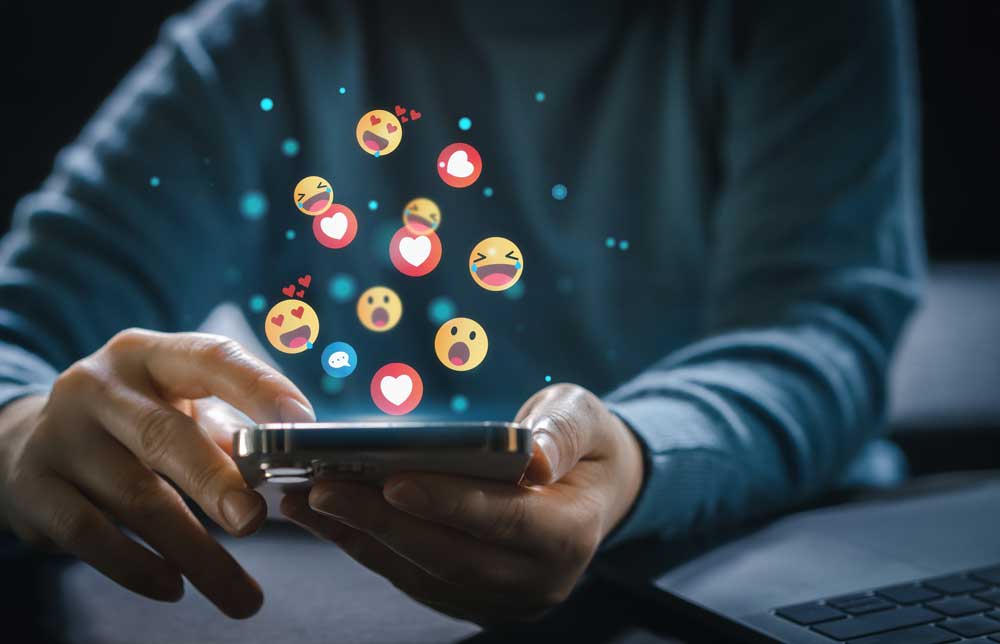There is no doubt that social media has made our lives easier at so many levels. The presence of social media platforms has especially become a voice for people who are otherwise shy or less expressive. Areas like learning, creativity, communication, staying connected and updated, self-expression, civic engagement and marketing have been positively impacted and seen conspicuous and much-needed growth over the years.
It's an undeniable fact that social media is deeply embedded into the ways we consume information and stay connected, using content wisely. But all this has been offset by its negative impact - it fuels depression, anxiety, FOMO, jealousy, a superiority or inferiority complex. The warning signs are when feelings –of sadness, dissatisfaction, frustration, or loneliness start rearing their heads. It is imperative then to re-check your relationship with your online presence, especially since it’s human nature to constantly compare oneself with others.

As per several online and offline reports, it's clear that social media negatively impacts mostly young adults or teenagers. The super addictive nature of social media usage activates the brain by releasing dopamine. Dopamine is a feel-good chemical. Anything that validates our posts or comments on any social media platform gives it yet another boost. So, it’s particularly important to keep a check on one’s tendencies while using social media, because these tendencies stay for several years, allowing social media presence to become more invasive as it evolves.
Here’s how social media really impacts mental health:
Constant Comparison And Self-Esteem:
One of the leading issues of social media is users trying to show their best, whether it is how they look or their lifestyles. This portrays the false narrative of a ‘perfect life’, which may not be the whole truth. Viewers watching these updates react, assuming their friends/relatives’ lives are wonderful, while they themselves are leading mundane lives with problems. This phenomenon is termed ’social comparison‘. An article released by CU Online stated, ’This fact is related to a study by the University of Pennsylvania that found that limiting social media use to 30 minutes a day can lead to significant reductions in feelings of loneliness and depression. The study found that people who reduced their social media usage experienced a 30 per cent reduction in these negative feelings.’
Sleep Disorders:
It’s natural that a person who wastes limitless time on social media will disrupt their daily sleep routine because the virtual world is more exciting and engaging than their own time for rest. The blue light emitted by the phone screen can actually mess with the production of the ‘melatonin’ hormone that regulates sleep.
Cyberbullying:
Online harassment and offensive comments are key examples of cyberbullying, which the young adults mostly fall prey to. This is followed by feelings of suicidal thoughts, worthlessness, depression and a tarnished self-image.
FOMO:

When you watch someone enjoying a good vacation or partying away or bonding with family, you are bound to feel envious or go through what is known as FOMO or ‘fear of missing out’. This feeling also erupts from the fact that you constantly seek happiness outside of you.
Addiction:
Being addicted to social media is a sign of compulsive behaviour, or the inability to control the amount of time spent online. As a result, a person has no track of how much time they have wasted.
Misinformation:
Due to the viral nature and quick diffusion of content on social media, false or misleading information may create more chaos, potentially resulting in confusion. These rumours could subsequently create unpredictable reactions from the public.
Frauds And Scams:
Acts of fraudulence and scams are other risk factors while being too active on social media. There have been innumerable people who have been badly tricked through cyber frauds. Their social media profile has even been hacked if they’re not careful. Bogus scams and phishing are always on the internet and if we don’t have the knowledge, we might be at a losing wicket.

Let’s deep dive into quick, yet important tips to curb the excessive usage of social media without having to give up on it completely:
Set Time Limits: Decide how many minutes you would spend each day on social media and strictly abide by this.
Schedule Breaks: Doing anything at a stretch can be really bad for health, and this is especially true of screen time. Getting into the habit of a digital detox really helps calm down the brain muscles.
Curate Your Feed: Be wise and mindful of the content you wish to consume, and focus on it. This will do away with unnecessary distractions that are in no way of any use.
Be Aware Of Tour Triggers:
You will know from within when things start bothering you. Take quick action by abstaining from further usage. Engage in coping strategies –such as meditation or journaling.